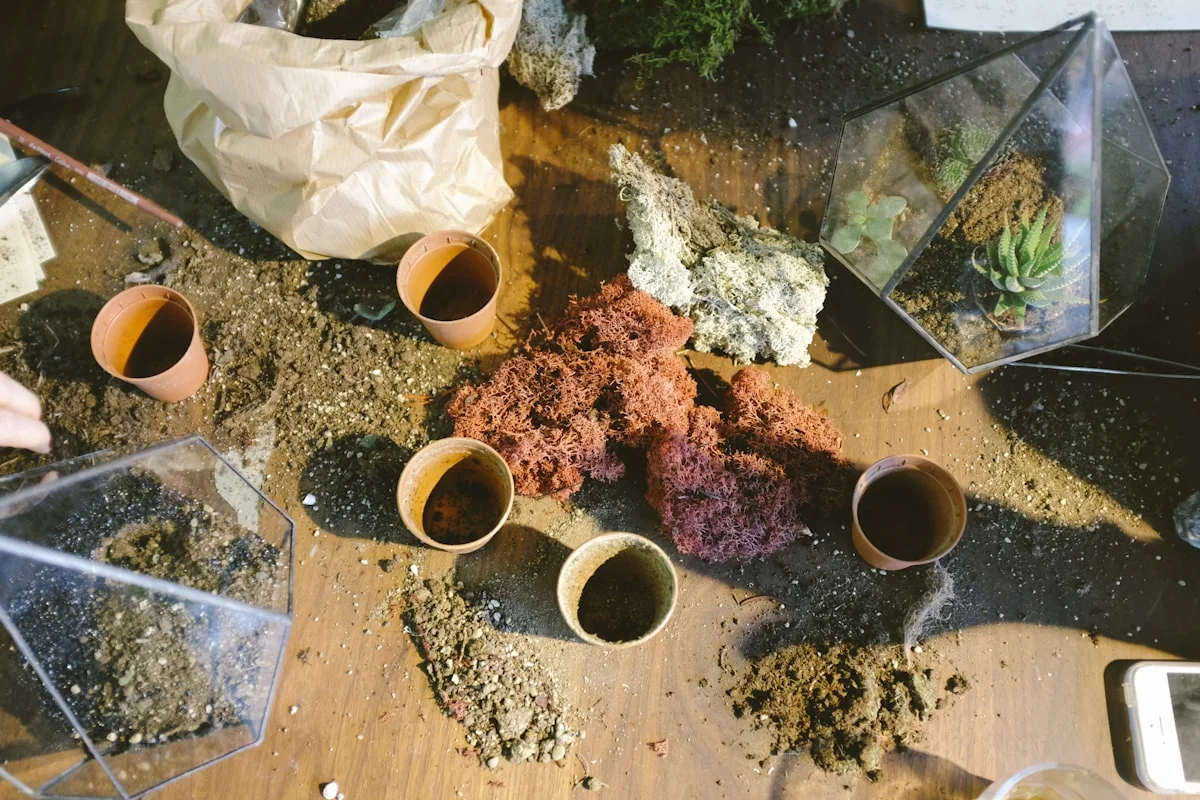# Beginner Composting Guide: How to Start in 2025
What Is Composting and Why Should You Start?
If you’re new to sustainable living, this beginner composting guide will help you turn kitchen scraps and yard waste into nutrient-rich soil. Composting is a natural process that breaks down organic matter, reducing landfill waste while enriching your garden. Whether you’re an urban apartment dweller or have a backyard, this beginner composting guide covers everything you need to know to get started in 2025.
Composting isn’t just for seasoned gardeners—anyone can do it with minimal effort. By recycling food scraps and plant debris, you reduce methane emissions from landfills and create free fertilizer. Plus, composting improves soil structure, retains moisture, and supports healthy plant growth. Ready to dive in? Let’s explore the basics of composting for beginners.
Choosing the Right Composting Method for Beginners
Before you start, decide which composting method suits your lifestyle. The most common options for beginners include backyard composting, vermicomposting (worm composting), and bokashi (fermentation). Backyard composting is ideal if you have outdoor space, while vermicomposting works well for apartments or small spaces. Bokashi is another compact option that ferments food waste quickly, including meat and dairy, which traditional composting avoids.
For most beginners, a simple outdoor compost bin or pile is the easiest way to start. You can buy a ready-made compost bin or build one using wooden pallets or wire mesh. If you’re short on space, a small indoor worm bin is a great alternative. Red wigglers are the best worms for composting, as they efficiently break down organic material without odors.
What Can and Can’t You Compost?
A key part of this beginner composting guide is knowing what materials to compost. Green materials (nitrogen-rich) include fruit and vegetable scraps, coffee grounds, and fresh grass clippings. Brown materials (carbon-rich) include dried leaves, cardboard, and straw. A good rule is to maintain a 2:1 ratio of browns to greens for optimal decomposition.
Avoid composting meat, dairy, oily foods, and pet waste, as they attract pests and create odors. Diseased plants and weeds with seeds should also be left out to prevent spreading pathogens. If you’re unsure whether something is compostable, it’s best to leave it out or research further.
Setting Up Your First Compost Pile
Start by selecting a dry, shaded spot near a water source. Layer brown and green materials, ensuring proper aeration by mixing or turning the pile weekly. Moisture is crucial—your compost should feel like a damp sponge. If it’s too dry, add water; if too wet, mix in more brown materials.
Over time, microorganisms and decomposers like worms will break down the materials into dark, crumbly compost. Depending on conditions, this process can take a few months to a year. To speed things up, chop materials into smaller pieces and turn the pile regularly to introduce oxygen.
Common Composting Mistakes to Avoid
Many beginners make simple mistakes that slow down composting. Adding too many greens without enough browns leads to a smelly, slimy pile. Neglecting to turn the compost reduces airflow, slowing decomposition. Another common error is composting inorganic materials like plastic or glossy paper, which don’t break down and contaminate the compost.
Patience is key—composting is a natural process that can’t be rushed. If your pile isn’t heating up, check the balance of materials and moisture. A well-maintained compost pile should generate heat as microbes work, indicating active decomposition.
Using Your Finished Compost
Once your compost is dark, earthy-smelling, and free of large chunks, it’s ready to use. Spread it in your garden beds as a soil amendment, mix it into potting soil, or use it as mulch. Compost improves soil fertility, enhances water retention, and reduces the need for chemical fertilizers.
If you’re growing vegetables, compost provides essential nutrients for healthy crops. Even houseplants benefit from a light top dressing of compost. By following this beginner composting guide, you’ll not only reduce waste but also create a sustainable loop that benefits your garden and the planet.
Final Thoughts on Beginner Composting
Starting a compost pile in 2025 is easier than you think, and the environmental benefits are immense. Whether you choose a backyard bin, worm composting, or bokashi, the key is consistency and balance. Remember, composting is a learning process—don’t be afraid to experiment and adjust as you go.
By following this beginner composting guide, you’ll soon turn everyday waste into garden gold. Ready to take the next step? Gather your kitchen scraps, set up your compost system, and watch nature do the rest!

